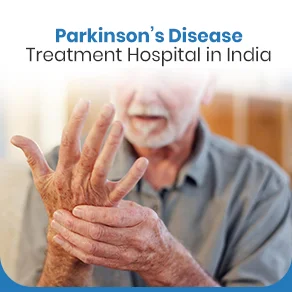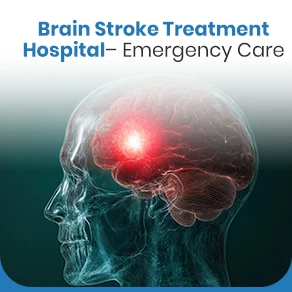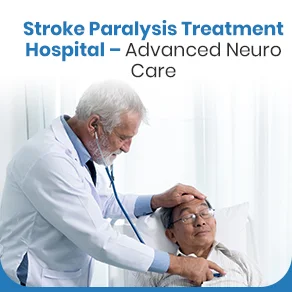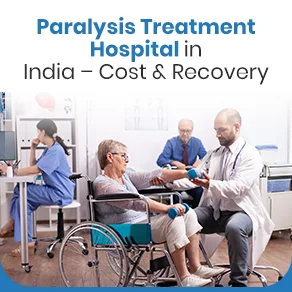
IBS Hospital proudly introduces Cyberdyne, a revolutionary step in Neuro Rehab in India. Featuring the cutting-edge HAL (Hybrid Assistive Limb) technology, Cyberdyne offers unparalleled support for patients with spinal cord injuries and neurological disorders, heralding a new era of advanced rehabilitative care in South Asia.



What is Cyberdyne HAL?
Cyberdyne’s HAL (Hybrid Assistive Limb) is a groundbreaking technology designed to assist patients with physical impairments related to spinal cord injuries and complex neurological conditions. This wearable exoskeleton, curated to improve, support, and regenerate the wearer’s limb function, embodies the aim of promoting rehabilitation by aiding in limb function recovery. The technology leverages real-time biofeedback to facilitate intended motion, detecting mild electrical signals transmitted through the skin during limb movement. It then interprets these signals to enhance the motor learning capacity of the cerebral nerves, making it an innovative tool in supporting and regenerating limb functions in sync with the patient’s natural movements.
How does Cyberdyne’s HAL system assist in the Rehabilitation of individuals with limb functional impairments due to Spinal Injuries or Neurological conditions?
Functional impairment of the limbs is often caused by a spinal injury or a neurological condition that directly or indirectly affects the natural neural pathways. Before performing any motion, we generally think about doing it, and as this happens, our brain generates signals that are transmitted to the concerned muscles through these pathways. Cyberdynes HAL works by stimulating the affected nerves to restore the flow of signals.
Reading and Interpreting Signals: Cyberdyne HAL reads the faint bioelectric signals (BES) transmitted to the skin surface, understanding and interpreting the intended motion.
Recognizing the Motion: This technology integrates man machine and & information seamlessly. It operates swiftly, without pause, to recognize, interpret, and generate motion rapidly.
Learning Motions: The treatment aids the brain in learning the signals, sending positive feedback when the intended motion is completed.
What range of medical conditions does Cyberdyne HAL target in Rehabilitation?
Cyberdyne HAL can be recommended for patients with compromised limb function due to any of the following conditions:
Brain Stroke: A potentially life-threatening condition characterized by brain cell damage due to a restricted supply of oxygenated blood.
Brain Injury: Traumatic injuries affecting any part of the brain, generally caused by physical violence, falls, and road traffic accidents.
Cerebral Palsy: An umbrella term for a group of conditions that negatively impact a persons balance, posture, and muscle strength.
Neurodegenerative Disease: A progressive condition marked by the gradual degeneration of brain cells.
Spasticity: A condition characterized by abnormally increased muscle tone and stiffness, affecting a persons ability to move or speak.
Parkinsons Disease: A progressive neurodegenerative disorder that leads to symptoms like bradykinesia, involuntary jerks, and severe muscle stiffness.
Motor Neuron Disease: A rare yet aggressive condition marked by the gradual degeneration of motor neurons.
Multiple Sclerosis: A potentially debilitating condition where the immune system attacks myelin, the protective heath guarding the nerve fibers.
What are the advantages of Cyberdyne HAL Rehabilitation ?
- It provides proper assistance to the patient’s limbs, facilitating movements they cannot perform independently.
- It aids in improved recovery & rehabilitation of patients, enabling them to engage in various motions during physical therapy.
- It activates and strengthens the users’ muscles, addressing their specific needs and requirements.
- It enhances the quality of the patient’s life by allowing them to participate in normal day-to-day activities.
IBS Hospital Empowers Your Treatment with Cutting-edge Technology
We continuously incorporate cutting-edge technologies from around the world into our offerings, such as a surgical system that allows for precise and confident complex procedures. We use magnetic stimulation to treat certain neurological conditions and create personalised brain maps for tailored treatment plans. Nerve monitoring during surgeries ensures the nervous system is not compromised, and a robotic exoskeleton aids in mobility issues. Our goal at IBS Hospital is to provide the best care possible, utilising the latest and most innovative technologies available.







